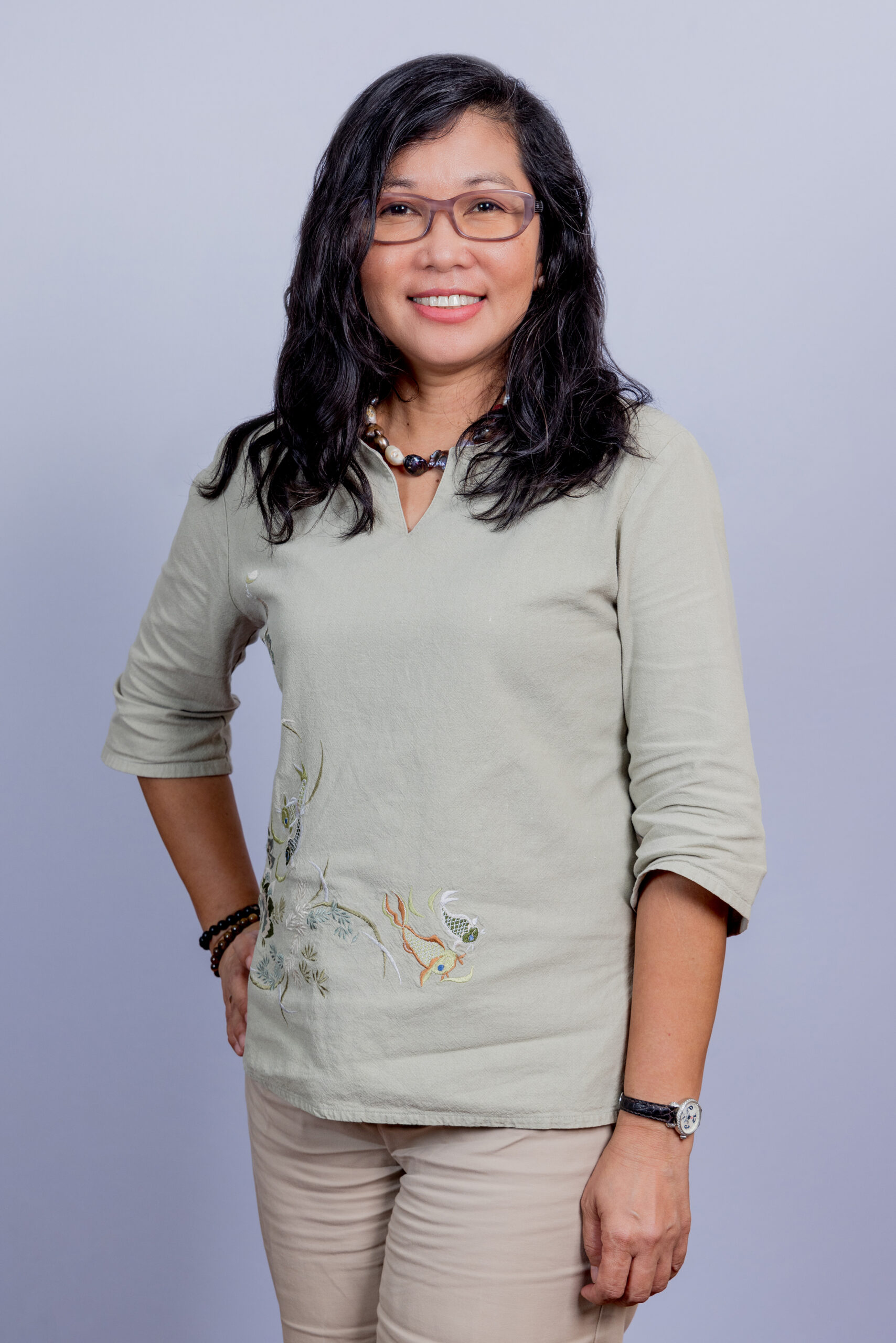Portia L. Reyes

Profile: https://discovery.nus.edu.sg/1453-portia-reyes/
Tel: (65) 6516 3756
Office: AS1-05-06
Email
My training in history (BA, 1992; MA, 1997) began at the University of the Philippines (UP). The country’s premier institution of higher learning has given me more than the discipline, however. At UP while being exposed to all kinds of ideological orientations, I have been enriched by some of the most talented and selfless people in and outside the classroom. From its most controversial professors, to its student organizations, to its humble street-food vendors on its sprawling campus, UP has provided me with a world-class education and ideal version of university life. I carried these impressions with me to Germany where I attended graduate school.
Studying at the Universität Bremen (through a generous scholarship granted by the Deutsche Akademische Austausdienst) forced upon me the realization of the complexities that underpin thought history, my preferred disciplinal track. I have taken this challenge to learn how to identify and appreciate details and conceptual themes that shape the big story in an historical narrative. In particular I have focused my research on how a contemporary indigenization of knowledge movement has split Filipino historians and, more importantly, has been redefining the nature and direction of history-writing in the Philippines. Eventually, hard work and persistence paid off: in 2002 I received my Ph.D. Still, not everything about graduate school was doom and gloom. In Germany I discovered a penchant for not just the German language and philosophy, but also for delicious Turkish food! Good and cheap, the so-called imbisse has provided numerous dinners (and delectable desserts) and so saved me from my own cooking.
On a more personal note I am fascinated with classical music; I like the opera the most. Neither does it have to be in Italian. The drama, the elaborate costume and stage designs, the tragic end and the majestic music by a full symphony appeal to me. I would go anytime, if I could (or afford to!). I'm also a big fan of the Yankees.
TEACHING AREAS:
- Philippine History; Southeast Asian History
RESEARCH INTEREST:
- Southeast Asian History; History of Ideas; German Hermeneutics; Critical Theory; Philippine History and Philosophy
SELECTED PUBLICATIONS:
Books:
- with Merle Ricklefs, Bruce Lockhart, Albert Lau and Maitrii Aung-Thwin, A New History of Southeast Asia. Basingstoke: Palgrave/ Macmillan, 2010.
- Pag-aaral sa Ikalabing-siyam na Siglong Intelektwalismo ng Pilipinas. Panahon at Pagsasalaysay ni Pedro Paterno, 1858-1911.(An Analysis of Nineteenth Century Intellectualism in the Philippines: Times and Historiography of Pedro Paterno, 1858- 1911) Quezon City: BAKAS, (forthcoming).
Refereed Essays (Journal Articles):
- with Ramon Guillermo. "Paraphrasing Europe: Translation in Contemporary Filipino History," Kritika Kultura, Vol. 13, pp. 64-99, 2009
- "Eyes on the Prize. Colonial Fantasies, the German Self and Newspaper Accounts of the 1896 Philippine Revolution," Itinerario, Vol. 32 No. 2, pp. 105-33, 2008.
- "Fighting over a Nation: Theorizing a Filipino Historiography," Postcolonial Studies, Vol. 11 No. 3, pp. 241-58, 2008.
- “A ‘Treasonous’ History of Filipino Historiography: The Life and Times of Pedro Paterno, 1858-1911,” in South East Asia Research, Vol. 14 No. 1, pp. 87-121, 2006.
- “Pantayong Pananaw und Bagong Kasaysayan in der Neueren Philippinischen Historiographie. Die Geschichte der philippinischen Historiographie als eine Ideengeschichte unterschiedlischer Sichtweisen,” Jahrbuch für Europäische Überseegeschichte. 3. Forschungsstiftung für Europäische Überseegeschichte. Wiesbaden: Harrassowitz Verlag, pp. 149-154, 2003.
Book Chapters and Other Publications:
- "Badar ud-Din, Sultan (of Sulu)," "Buisan, Sultan (of Maguindanao)," "Bungsu, Raja (of Sulu)," The Encyclopedia of Islam, Third Edition, Part 2009-3. Leiden: Brill, 2009.
- “The Language of History: An Overview of the Linguistic Turn in Philippine History Textbooks, 1992-2000,” in Topsie Ruannie Tupas (ed.), (Re)making Society. The Politics of Language, Discourse, and Identity in the Philippines. Quezon City: University of the Philippines Press, 2007.
- “The Nation’s Path Interrupted: the Pacific War in Philippine History Textbooks,” International Institute for Asian Studies Newsletter 38, 2005.

